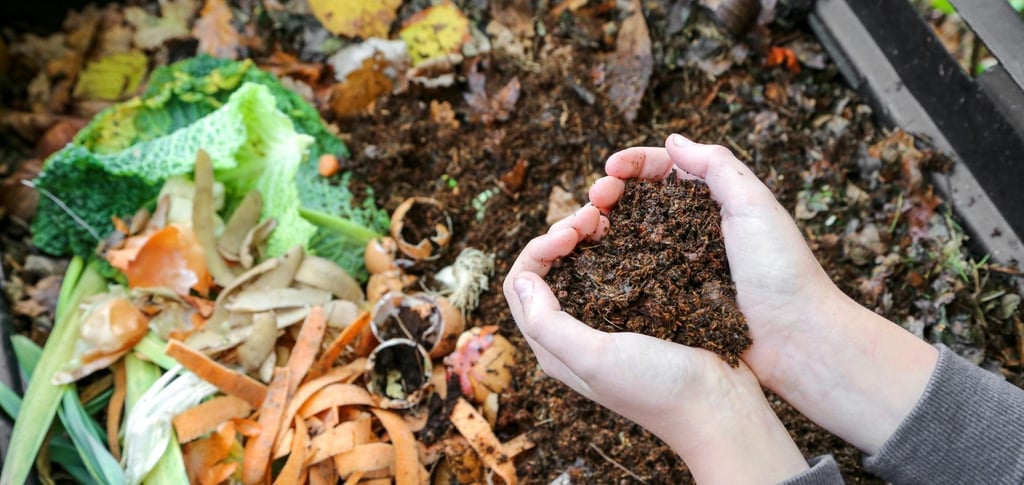The Importance of Composting
ENVIRONMENTAL ISSUES
8/27/20242 min read


Composting is a common and effective way to create nutritious soil through organic items like eggshells, peels, leftovers, leaves, and many more. Not only does this process help improve the soil in gardens, but, it also helps reduce the amount of organic items that is sent to landfills which in turn is better for the environment.
As mentioned, one great benefit of composting is to reduce the amount of organic matter that ends up in landfills like leftover food and instead, repurpose this matter to further help the planet. Food waste makes up about 24% of total human trash and not only is wasting food bad due to the efforts of farming, preparing and making it go down the drain, but, food in landfills, over time, also produces a greenhouse gas called methane that contributes to global warming. Since waste decomposes anaerobically lots methane is produced which is the reason why land-fills are the third biggest contributors to methane emissions. When organic matter is used for compost, it is able to decompose aerobically which will shorten the amount of methane produced。
Another reason why composting is important is to save fresh water. Also talked about previously, composting creates more healthy soil compared to degraded soil. Since agriculture is the primary activity that takes up the most amount of fresh water, less water is needed for plants in healthier soil because it can maintain more water.
Lastly, composting reduces the need for using fertilizers and pesticides. Since compost is healthier soil, the need for such products is reduced which not only saves money for the people buying them but also helps the environment because some forms of fertilizers and pesticides do harm the environment.
Overall, composting is a easy and important method for improving the environment of Earth. Due to the Earth's health getting worse and worse due to factors like greenhouse gas emissions, pollution, deforestation etc., it is important to make a positive impact when possible. Composting is one of the many ways one can do that.
Sources:
Hu, Shelia. 2020. “Composting 101.” NRDC. July 20, 2020. https://www.nrdc.org/stories/composting-101#benefits.
sitemender. 2020. “Does Composting Produce Methane Gas? - Why Composting Greenhouse Gases Help.” MOONSHOT COMPOSTING. October 27, 2020. https://www.moonshotcompost.com/blog/does-composting-produce-methane-gas-greenhouse-gases/.
US EPA. 2021. “Composting Food Waste: Keeping a Good Thing Going.” Www.epa.gov. March 8, 2021. https://www.epa.gov/snep/composting-food-waste-keeping-good-thing-going#:~:text=In%20addition%2C%20composting%20lowers%20greenhouse.
Nutrition, Center for Food Safety and Applied. 2022. “Food Loss and Waste.” FDA, January. https://www.fda.gov/food/consumers/food-loss-and-waste#:~:text=EPA%20estimates%20that%20more%20food.
United States Environmental Protection Agency. 2018. “Composting at Home.” US EPA. October 16, 2018. https://www.epa.gov/recycle/composting-home
